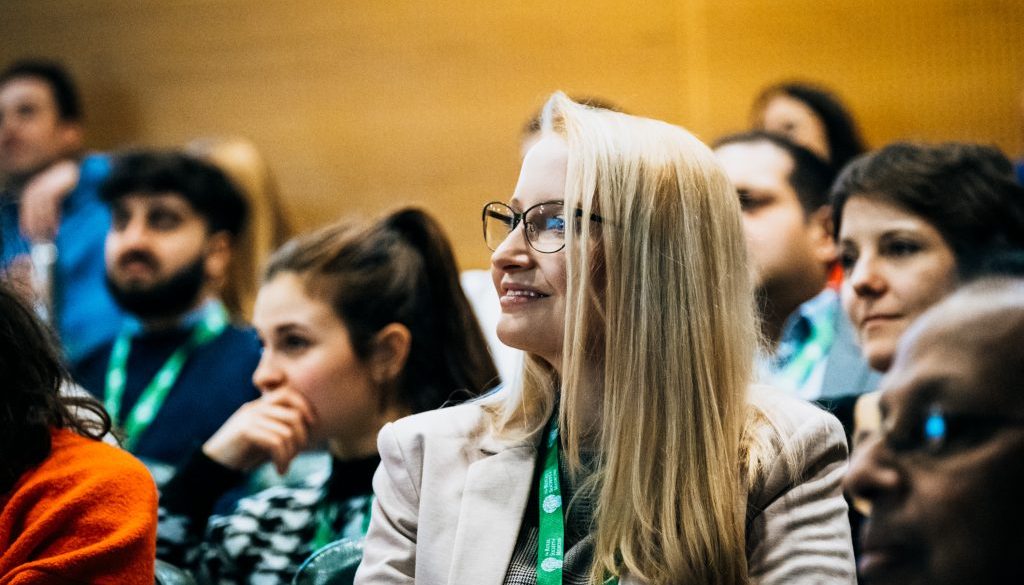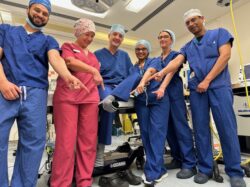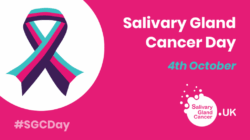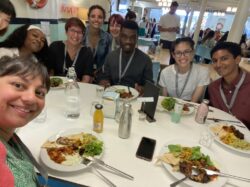Similarities & Differences in Genetic Counselling in the UK and South Africa
Melissa Clasen, genetic counsellor, has recently moved from South Africa to work in London. In this article she discusses some of the unique differences in access to care, support and genetic tests for patients and their families in South Africa. And compares them to what is available in the UK.
Cultural Context is Key
Genetic counselling in South Africa is a small but growing profession. Unlike in the UK where most specialist hospitals have a small but growing team. Albeit, for this niche profession, the demand currently always exceeds supply.
Access to genetic testing in a state setting in South Africa is limited but is expanding due to its importance whereas, here in the UK, accessibility is available to most who meet the testing criteria.
Although I could recite this list of comparison at length, the more I write, the more I realise it is a bit like comparing apples to pears. Fundamentally, across the globe, health care professionals at the frontline are always doing the best that they can with what resources they have to their disposal and for that we can applaud them no matter where they may find themselves.
Of course, when examining South Africa and the UK, the differences between the two nations seem striking and vast because the struggles and the issues faced are so different. However the longer I thought about these differences the more I came across the similarities. Neither country has a fully realised strategic plan for rare diseases. In both countries people with rare diseases can wait years for a diagnosis due to the culture in which they live. This begged me to answer a bigger question- “whose responsibility is it to talk about rare diseases?”. The simple answer is that it is everyone’s responsibility.
In my home country, in many of the 11 official national languages, there simply are no words for ‘chromosome’, there are no equivalent words to describe ‘depression’ or ‘gene’ and the list goes on.
In the same way that you cannot compare one patient’s lived experience to the next, you cannot really compare countries without acknowledging the cultural differences, the communicable disease issues or the assumptions held by everyone, even professionals.
The Role of a South African Genetic Counsellor
An example of cultural difference that I observed is when a mom who, in a panic, left her baby with albinism at the hospital after birth in shock. For her, the baby’s complexion was unexplained, foreign and cultural myths told her something is amiss, and that the community will shun her or worse, harm the baby. Dispelling such myths formed an integral and important part of the Genetic Counselling service offered in South Africa. ‘Albinism in Africa: Historical, Geographic, Medical, Genetic, and Psychosocial Aspects’, part-edited by one of my mentors, offers a fantastic look into the lives of people diagnosed with albinism and the unique struggles they have faced and continue to face in some parts of Africa (Kromberg and Manga, 2018) (available for purchase on Amazon.co.uk).
In a more rural setting in South Africa, I recall a mother crying upon the diagnosis of Down syndrome in her child, not because of the diagnosis itself but because she was living with a terminal condition herself, AIDS. Her biggest fear was “what was to become of this child, this child who would have so many challenges of their own?” Her concern was what if she was no longer there to fend for him, in a community where she already lacked the resources to provide for her family?
There was also the 15-year-old boy with haemophilia, who despite attending a weekly Haemophilia Clinic and seeing a range of doctors and a physiotherapist, had never been told how this condition is inherited. Obviously, when I saw him, he had questions about the risk to his future children.
I knew of a nurse in the Cystic Fibrosis Clinic, who did not herself fully understand autosomal recessive inheritance but never thought to ask the Genetic Counsellors for advice on speaking to the patients. Meaning there was countless missed opportunities to have these open discussions with patients.
I now also reflect on the long-winded summary letters that we would write, where we never state the definition of the medical jargon we used so easily. The letters we write without even asking ourselves, if we confidently know that this individual can understand this jumble of words or even if they can read? Perhaps English is their second or third language? We simply assume.
Checking Understanding
In examining the contrast of working in South Africa and the UK I have been confronted with how often medical professionals assume that people know what they consider to be ‘the basics’. For example we may assume that people know what the word ‘chromosome’ means; that they understand what signs or symptoms to look out for in depression or that they are not influenced by cultural myths. In the UK there can be an assumption that everyone learnt about genetics in Biology at school. The fallacy that it is ‘someone else’s job’ to discuss the genetic basis of disease is sadly something which occurs everywhere around the world. The family doctor may leave it to the specialist who may leave it to the geneticist who thinks that it has already been covered by the genetic counsellor. I would often hear that “it’s someone else’s job to offer support” or worse, “someone else has surely already explained it to this family”. These experiences are common to both countries despite their differences in health care provision and approach to patient education.
A senior colleague once observed me in clinic and afterwards, upon reflection, said to me, “That was very thorough, but surely you cannot talk them through all of this in every session, it is exhausting!” I was perplexed, because whilst other healthcare providers simply do not have the 45 minutes granted to a Genetic Counsellor, was it not my job to be thorough? Was it not my sole purpose to educate and support?
We Must Evolve With Medicine
As the field of Medicine evolves, so must we. Importantly, for those working in rare disease, it is imperative that Genetic Counsellors always remember that we are not just here for collecting blood tubes and misunderstood consent forms, even if that’s how we get pigeon-holed.
Discussing rare disease genetics, is and will always be a difficult task that requires time and concentration. Not only can the concepts be hard to get but it is an area often riddled with emotion for patients and families. However we cannot afford to miss the opportunity to talk about rare disease.
You might be the only person who has had the opportunity or thought to check in with your patient.
You could offer education in your everyday clinical roles when everyone else may have assumed that it is someone else’s problem. If you have 5 minutes to spare, use it to educate and support, because that person might never have had that conversation with anyone.
Talking about rare disease is everyone’s problem. Educating ourselves about rare disease is everyone’s responsibility. Checking our patients’ understanding of complex and sensitive concepts like genetic origin of disease is our duty.
Book Reference:
Kromberg, J. and Manga, P. (2018). Albinism in Africa: Historical, Geographic, Medical, Genetic, and Psychosocial Aspects. 1st ed. Academic Press. (Available for purchase Amazon.co.uk)
Thank you to Melissa Clasen for sharing her experiences with our followers. The stories and opinions in this article are those of the author and M4RD do not necessarily reflect those of M4RD.
If you would like to read about awareness of rare disease in different populations we suggest you head over to Findacure.org and read the Student Voice essays from Anneliese Ng and Naomi Morka




